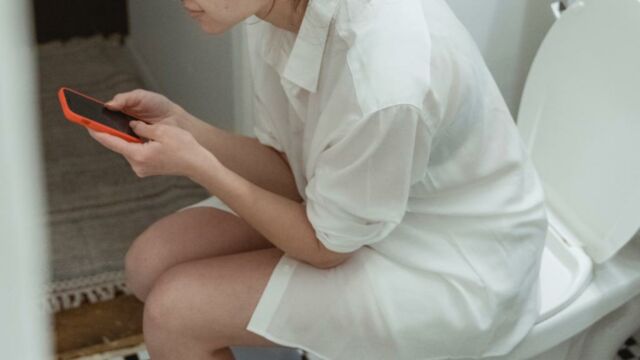Excessive urination volume, also known as polyuria, occurs when you urinate more than normal. While it is often not a cause for concern, in some cases it can signal serious health problems. Here is when to worry and seek help.
Discover our latest podcast
How much is too much?
Normal urine volume depends on your age and gender. However, less than 2 litres per day is usually considered normal while more than 2.5 litres are excessive.
And while peeing too much for 2-3 days shouldn't be a reason to worry, symptoms lasting longer than that are a medical concern.
Many people notice that they have to get up a lot at night. In this case, the condition is called nocturnal polyuria, or nocturia.
Read more:
⋙ Pelvic health: You should never pee just before you leave your house, here's why
⋙ Gas stoves could be dangerous to your health, here's how
Here is why you pee too much

Health problems behind excessive urination include bladder infection, urinary incontinence, diabetes, and interstitial nephritis. But it can also be kidney failure or kidney stones.
Psychogenic polydipsia, a mental disorder causing excessive thirst, can be another culprit that makes you pee a lot.
Other conditions include sickle cell anaemia, enlarged prostate, also known as benign prostatic hyperplasia, and certain kinds of cancer.
You may also notice polyuria after a CT scan or any other hospital test in which a dye is injected into your body. Excessive urine volume is common the day after the test. Call your doctor if the problem continues.
Here is when to seek help
If excessive urination is accompanied by fever, back pain or leg weakness, you should seek help from your doctor.
If the onset of polyuria is sudden, especially in early childhood, it is important not to delay calling your GP.
Mental disorders, night sweats and weight loss along with you peeing too much is also a reason to seek treatment.
These symptoms can signal spinal cord disorders, diabetes, kidney infections, or cancer. Look for help as soon as you notice them as early intervention has the potential to address the cause of your polyuria and maintain good health.
If you think the increase is due to your consumption of extra fluids or medication, monitor your urine volume for a couple of days. If the excessive volume continues after this period of monitoring, talk to your doctor.
Read more:
⋙ Eating this surprising food will make your genitals smell good
⋙ This is the one bathroom cubicle you should never use
Sources used:
- Healthline: 'Excessive Urination Volume (Polyuria)'















